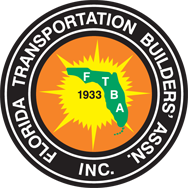Choose a Qualified Mobility Dealer to Modify Your Vehicle
Even a half-inch change in the lowering of a van floor can affect a driver’s ability to use equipment or to have an unobstructed view of the road. So it’s important that you take the time to find a qualified dealer to modify your vehicle. Your driver rehabilitation specialist may be able to provide referrals depending on where you live and your vehicle modification and adaptive equipment needs.
Note: Some State agencies specify the dealer you must use if you want reimbursement. For example, some States require that dealers bidding on State vocational rehabilitation jobs be members of the National Mobility Equipment Dealer’s (NMEDA’s) Quality Assurance Program.
To find qualified mobility equipment dealers, begin with phone inquiries to learn about credentials, experience, and references. Ask questions about how they operate. Do they work with qualified driver rehabilitation specialists? Will they look at your vehicle before you buy it? Do they require a prescription from a physician or driver evaluation specialist? How long will it take before they can start work on your vehicle?
Also ensure that the dealer you choose to modify your vehicle is registered with the National Highway Traffic Safety Administration (NHTSA). In order to adapt a vehicle to meet your needs, registered equipment dealers are permitted to modify existing federally mandated safety equipment. In addition, registered mobility equipment dealers must provide you with a written statement regarding the work that was performed, as well as list any Federal Motor Vehicle Safety Standards affected by their modification work on a label adjacent to the original equipment manufacturer’s label or the modifier’s certification label. These labels are often found inside the driver’s door. Visit www.nhtsa.gov/apps/modifier/index.htm to find out if a mobility equipment dealer is registered with NHTSA as a vehicle modifier.
Questions to consider in evaluating a mobility equipment dealer’s qualifications
- Is the dealer registered with NHTSA?
- Is the dealer a member of NMEDA — and a participant in this organization's Quality Assurance Program?
- What type of training has the staff received?
- What type of warranty is provided on work?
- Does the dealer provide ongoing service and maintenance?
- Are replacement parts stocked and readily available?
If you are satisfied with the answers you receive, check references; then arrange to visit the dealer’s facility. Once you are comfortable with a dealer’s qualifications, you will want to ask more specific questions.
More Specific Questions To Ask
- How much will the modification cost?
- Are third-party payments accepted?
- How long will it take to modify the vehicle?
- Can the equipment be transferred to a new vehicle in the future?
- Will existing safety features need to be modified to install the adaptive equipment?
While your vehicle is being modified, you will most likely need to be available for fittings. This prevents additional waiting time for adjustments once the equipment is fully installed. Without proper fittings you may have problems with the safe operation of the vehicle and have to go back for adjustments.








